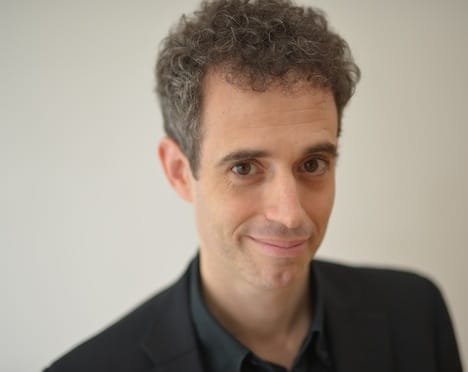De val van moslimenclave Srebrenica op 11 juli 1995 houdt de gemoederen nog altijd bezig. Op zaterdag 11 juli a.s. herdenkt de Vereniging Democratisch Europa de genocide op ruim zevenduizend mannen die onder bescherming stonden van een Nederlands VN-bataljon, met een symposium en een opdrachtcompositie van Pablo Escande, De moordenaar en de pianospeler.
Onmiddellijk na de schokkende gebeurtenis begon het zwartepieten, temeer daar een fotorolletje van een aanwezige soldaat op mysterieuze wijze verdween. Ook twintig jaar na dato is Srebrenica nog steeds een open zenuw, getuige ook de strijd die weduwen en andere vrouwelijke familieleden blijven voeren tegen de Nederlandse Staat. Onlangs werd enkelen van hen een schadeloosstelling toegekend.
Een simpel ‘goed’ of ‘kwaad’ bestaat niet
Keer op keer duiken nieuwe feiten en documenten op, die het beeld telkens opnieuw doen kantelen. Is het in vredestijd al moeilijk de exacte toedracht van willekeurig welke gebeurtenis te bepalen, in stressvolle oorlogssituaties blijkt dat nog veel lastiger. Het is nu eenmaal onmogelijk de geschiedenis te duiden met een eenvoudig ‘goed’ of ‘kwaad’: zaken liggen gecompliceerd en ons geheugen wordt vertroebeld door belangen en emoties.
De Vereniging Democratisch Europa organiseert hierover zaterdag 11 juli een symposium in de Tolhuistuin, samen met Access Europa. Onder leiding van Thomas van der Dunk zullen betrokkenen, onderzoekers, historici en vertegenwoordigers van de Bosnische en Servische gemeenschappen in ons land discussiëren over de vraag ’20 jaar na Srebrenica: welke les geleerd?’ Een loffelijk streven, maar de vraag stellen is hem beantwoorden, want het is bekend dat wij zelden iets van de geschiedenis opsteken.
Srebrenica Oratorium
’s Avonds klinkt in de Buiksloterkerk de wereldpremière van het ‘Srebrenica oratorium’ De moordenaar en de pianospeler, dat de Argentijnse componist Pablo Escande speciaal voor de gelegenheid componeerde. Het libretto is van Paul Kapteyn, voorzitter van de Vereniging Democratisch Europa en initiator van het project. Het werk wordt uitgevoerd door een gelegenheidskoor en musici van het Nationaal Symfonisch Kamerorkest onder leiding van Joost Schouten.
Jammer dat deze opdracht niet werd gegund aan een Servische of Bosnische componist, en dat ook bij de uitvoering schijnbaar geen voormalige Joegoslaven betrokken zijn. Dat had wellicht een verbroederend effect kunnen hebben. Kapteyn koos voor Escande omdat zijn muziek ‘melodieus en modern is, minder bedacht en meer gevoelsmatig dan veel andere hedendaagse muziek, vooral in Nederland’.
In de subsidieaanvraag lezen we verder dat de tegenwoordig in Japan levende Escande wel degelijk aansluiting zocht bij het thema: ‘Escande laat zich voor delen van dit werk inspireren door aloude Bosnische liederen, waarvan hij sommige melodieën heeft verwerkt.’
Afgaande op het weblog van programmeur Jaïr Tchong van de Tolhuistuin, wordt het een indringende ervaring:
‘De repetitie die ik gisteravond bijwoonde stemt alvast even nieuwsgierig als weemoedig – als geen andere kunstvorm blijkt muziek in staat om door journalistieke afstomping heen te breken. Je kan eindeloos doorlezen over deze kwestie, en het boek De Slag om Srebrenica van Frank Westerman is werkelijk heel aangrijpend, maar ik merkte bij mezelf dat alleen muziek voorbij de ratio kan komen, en de horror deels invoelbaar maakt. Deels, want van het leed van de betrokkenen kan niemand zich een voorstelling maken.’
Naschrift: de première van Srbrenica Oratorium werd op video vastgelegd.

